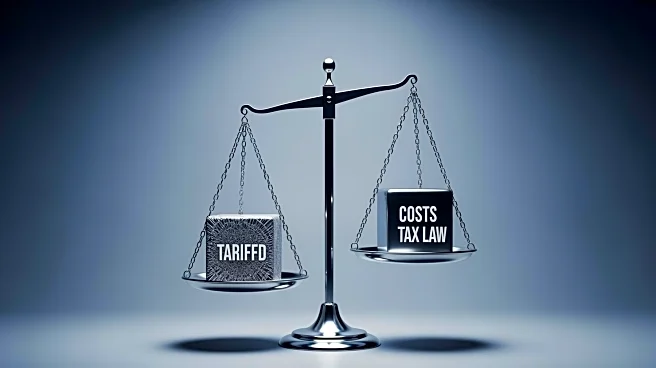What's Happening?
The European Parliament and Council negotiators have reached a provisional agreement to simplify the EU's common agricultural policy requirements. This agreement aims to alleviate administrative and regulatory
burdens on farmers during the current programming period. Key aspects of the agreement include more flexibility for farmers in maintaining land in good agricultural and environmental condition, limiting farm inspections to once per year, and increasing financial support for small-scale farmers. The agreement also includes provisions to protect biodiversity and reduce costly land ploughing requirements.
Why It's Important?
The simplification of agricultural policy is crucial for enhancing the efficiency and sustainability of farming practices in the EU. By reducing administrative burdens, the agreement supports farmers in focusing on productive activities rather than compliance. This can lead to increased agricultural output and improved environmental practices. The increased financial support for small-scale farmers is particularly significant, as it can help sustain rural economies and promote local food production. The agreement reflects the EU's commitment to supporting its agricultural sector while balancing environmental concerns.
What's Next?
The provisional agreement requires approval from both the Council and Parliament before it can be implemented. Once approved, the new rules will apply to over nine million farmers across Europe starting January 2026. The simplification of agricultural policy is expected to encourage more efficient farming practices and support the EU's goals for sustainable agriculture. Stakeholders, including farmers and environmental groups, will likely monitor the implementation closely to ensure that the intended benefits are realized.
Beyond the Headlines
The agreement highlights the EU's efforts to balance agricultural productivity with environmental sustainability. It underscores the importance of policy frameworks that support both economic and ecological goals. The simplification of rules may also serve as a model for other sectors seeking to reduce regulatory burdens while promoting sustainable practices.








